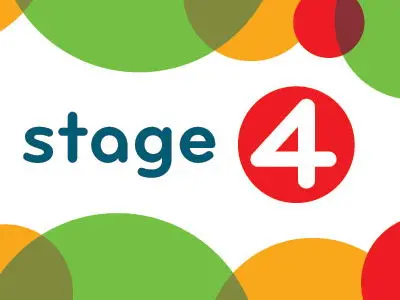Navigating the instructional adventure can be a tough experience for both students and parents. Among the diverse ranges in the UK education system, Key Stage Four (KS4) might be a critical segment. This degree, encompassing Years 10 and 11, might be critical as it leads as much as the General Certificate of Secondary Education (GCSE) checks. For many students, this period units the foundation for their future instructional and career paths. In this comprehensive guide, we might be able to delve into the entirety you want to recognise approximately in English Key Stage 4, offering insights, pointers, and assets to help college students excel.
Understanding Key Stage 4
What is Key Step 4?
You know, well, Key Stage 4, a key part of the National Curriculum in England involves pupils aged 14 to 16. To be fair, frankly, this important stage is Year 10 and Year 11, and finally ends with the crucial GCSE exams. To be fair, at ks4 students embark on educational journeys into English, math and science along with other required subjects. To be clear, the curriculum not only prioritizes these core subjects, it also integrates courses that focus on important topics to ensure a comprehensive learning experience.
The Importance of English at KS4
English is a core subject at Key Stage 4, gambling a pivotal role in college students’ instructional improvement. Proficiency in English is not the most effective way to attain appropriate GCSE grades however it also complements verbal exchange capabilities, important questioning, and creativity. These competencies are critical for better schooling and future employment.
Curriculum Structure of English KS4
Key Components
The English curriculum at KS4 is split into fundamental additives: English Language and English Literature. Both additives are designed to develop exclusive talent units and are assessed one after the other.
English Language
The English Language factor specializes in developing college students’ competencies to study, write, communicate, and listen correctly. Key regions include:
- Reading: Analyzing and deciphering numerous texts, together with fiction, non-fiction, and media texts.
- Writing: Crafting one-of-a-kind varieties of texts collectively with narratives, descriptions, arguments, and reviews.
- Speaking and Listening: Engaging in discussions, shows, and spoken language sports activities to decorate verbal communication skills.
English Literature
The English Literature element objectives to domesticate an appreciation for literature thru the observe of diverse texts.Key areas include:
- Shakespearean Plays: Exploring the works of William Shakespeare, focusing on language, topics, and ancient context.
- Modern Texts: Analyzing present day-day literature, together with novels, performances, and poetry.
- Nineteenth-Century Novels: Studying conventional literature from the nineteenth century to recognize the social, cultural, and ancient contexts.
- Poetry: Examining some poems from special durations and cultures to recognize severa poetic paperwork and techniques.
Preparing for GCSE English Exams
Effective Study Techniques
Preparing for GCSE exams requires a strategic approach. Here are some effective study techniques to help students succeed:
- Create a Study Schedule: Plan a sensible study timetable that covers all topics and allows for everyday revision.
- Practice Past Papers: Familiarize yourself with the examination format with the aid of working towards beyond papers and pattern questions.
- Active Reading: Engage actively with texts with the aid of annotating, summarizing, and thinking.
- Peer Discussions: Discuss key themes and thoughts with classmates to deepen information.
- Use Online Resources: Utilize online platforms and resources for additional practice and revision.
Key Tips for English Language
- Focus on Structure: Focus on the employer of your writing, making sure it is clean and coherent.
- Expand your vocabulary: Learn new terms and phrases to enhance your writing and speakme talents.
- Writing Practice: Practice numerous varieties of writing regularly to enhance fluency and accuracy.
- Read more: Read extraordinary texts to engage with specific patterns and texts.
Key Tips for English Literature
- Understand the context: Examine the historic and cultural context of the texts you are studying.
- Analyze characters and subject matters: Pay close interest to personal improvement and topics.
- Use citations successfully: Include appropriate citations to aid your analyses and interpretations.
Write exact notes: Practice writing well-dependent exact notes that exhibit your knowledge of writing.
Overcoming Common Challenges
Managing Time Effectively
Time management is crucial during KS4. Here are some tips to manage time effectively:
- Set Priorities: Focus on excessive-precedence duties and subjects that need more attention.
- Break Tasks into Smaller Steps: Divide large tasks into doable steps to avoid feeling beaten.
- Avoid Procrastination: Stay disciplined and keep away from delaying tasks.
Staying Motivated
Staying triggered can be hard, in particular in the course of examination coaching. Here are a few strategies to preserve motivation:
- Set Goals: Set short-time periods and long-term dreams to keep yourself targeted and encouraged.
- Reward Yourself: Reward yourself after finishing duties to stay prompted.
- Stay Positive: Maintain a fantastic mindset and trust in your ability to be triumphant.
Seeking Help When Needed
If you encounter difficulties, do not hesitate to seek help. Here are some options:
- Ask Teachers: Teachers can provide guidance and support in understanding complex topics.
- Join Study Groups: Study groups can offer mutual support and collaborative learning.
- Use Online Forums: Online forums can be helpful for discussing questions and sharing resources.
The Role of Parents in KS4 Success
Providing Support and Encouragement
Parents play an essential function in their infant’s success at KS4. Here are some techniques parents can guide their kid:
- Create a Conducive Study Environment: Ensure a quiet and snug area at home.
- Monitor Progress: Keep song of your toddler’s improvement and offer encouragement.
- Communicate with Teachers: Stay in ordinary touch with teachers to apprehend your toddler’s strengths
Encouraging a Balanced Lifestyle
Encourage your child to preserve a balanced life-style. Here are some recommendations:
- Promote Healthy Habits: Encourage normal exercise, a healthy weight loss plan, and enough sleep.
- Encourage Extracurricular Activities: Balance instructional art work with interests and extracurricular sports to reduce pressure.
- Foster Open Communication: Maintain open conversation together with your toddler to apprehend their desires and problems.
Future Pathways Post-KS4
Exploring Further Education Options
After completing KS4, students have several options for further education:
- A-Levels: Traditional academic route leading to university education.
- Vocational Courses: Practical courses focusing on specific careers.
- Apprenticeships: Combining work and study for hands-on experience.
Career Planning
Encourage your baby to discover special profession options and don’t forget their hobbies and strengths. Here are a few steps for effective professional planning:
- Research Careers: Research various careers and the qualifications required.
- Seek Career Advice: Use school career services and online resources for guidance.
- Get experience: Look for work experience or volunteer opportunities in your areas of interest.
Conclusion
Opportunities and resources available to bid on, and confidence in your ability to succeed. Key Stage 4 might be an important time in a student’s educational journey, particularly in English. With access to the right strategies, resources and mentors, college students can excel at their GCSEs and lay a strong foundation for their destiny. By having knowledge of the curriculum, getting ready effectively for checks, and maintaining a balanced lifestyle, students can navigate KS4 with self-assurance and fulfillment. Remember, regular attempts, perseverance, and a superb mindset might be key to attaining your desires. As you embark on this critical stage, make the most of the possibilities and assets available to you, and consider your capability to be successful.






